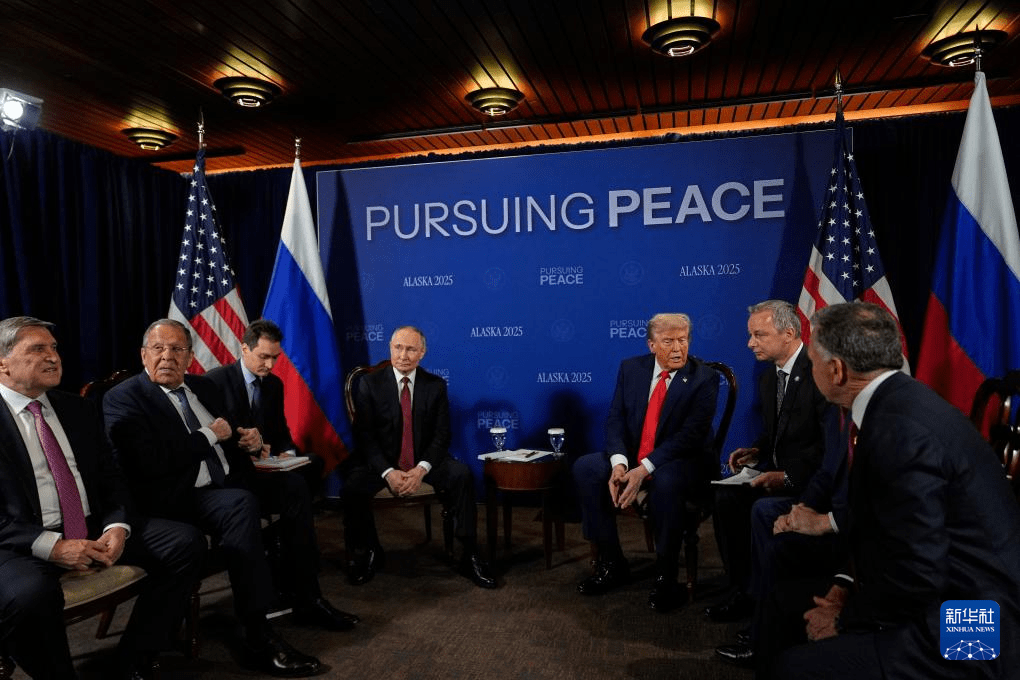In einem ausführlichen Interview mit The Paper, einer großen chinesischen digitalen Nachrichtenquelle (澎湃新闻), analysierte Maksym Chebotarov, Koordinator des US-Ukraine-Partnerschaftsprogramms im Transatlantic Dialogue Center (TDC), die Auswirkungen des Trump–Putin-Gipfels in Alaska auf die Ukraine und die internationale Diplomatie.
Chebotarov betonte, dass das Treffen zwar auf den ersten Blick diplomatische Fortschritte vermuten lasse, der Russland–Ukraine-Konflikt jedoch nicht allein im bilateralen Rahmen zwischen den USA und Russland gelöst werden könne: „Es ist äußerst unwahrscheinlich, dass der Russland–Ukraine-Konflikt ausschließlich im Rahmen bilateraler Beziehungen zwischen den Vereinigten Staaten und Russland gelöst wird. Ohne einen Konsens aller beteiligten Seiten wäre dies in vielerlei Hinsicht kontraproduktiv.“
Er hob die Sorge der Ukraine hervor, an den Rand gedrängt zu werden, insbesondere wenn territoriale Kompromisse ohne ihre Beteiligung besprochen werden: „Die international anerkannten Grenzen der Ukraine sind verfassungsmäßig festgelegt und nicht verhandelbar. Unter den gegenwärtigen Bedingungen ist jeder Vorschlag eines Gebietstausches politisch und rechtlich unmöglich.“

Chebotarov verwies auch auf das symbolische Gewicht Alaskas als Ort des Gipfels, sowohl wegen seiner historischen Bedeutung als auch wegen Trumps Vorliebe für eine streng kontrollierte Bühne: „Alaska bietet eine sichere und kontrollierte Umgebung, trägt aber zugleich historische Symbolik, als seltenes Beispiel eines friedlichen Gebietstransfers, die hier genutzt wird, um Trumps Ruf als ‚Dealmaker‘ zu unterstreichen.“
Er warnte, dass der Ausschluss der Ukraine und Europas aus dem zentralen diplomatischen Prozess das Risiko berge, gewaltsame Grenzverschiebungen zu legitimieren und die regelbasierte internationale Ordnung zu untergraben.
Schließlich stellte Chebotarov fest, dass der Gipfel eine wachsende strategische Divergenz zwischen den USA und Europa verdeutliche: Während Trump auf transaktionsorientierte „Frieden durch Handel“-Lösungen setze, blieben die europäischen Verbündeten die wichtigsten Sicherheits- und finanziellen Unterstützer der Ukraine und beharrten auf einem multilateralen Ansatz, der das Völkerrecht wahrt.
Das Transatlantic Dialogue Center verfolgt weiterhin die internationalen diplomatischen Entwicklungen und setzt sich für einen inklusiven und wertebasierten Friedensprozess ein – einen, der die Souveränität der Ukraine schützt und die gemeinsamen transatlantischen Werte widerspiegelt.